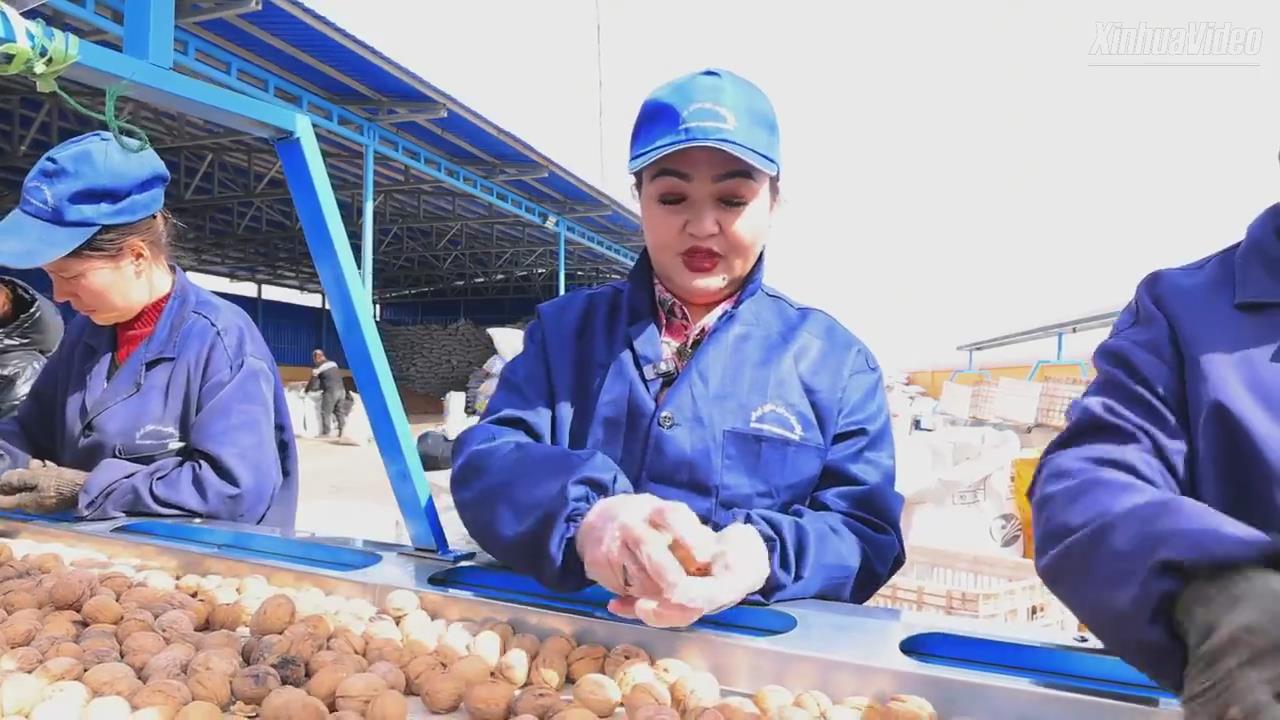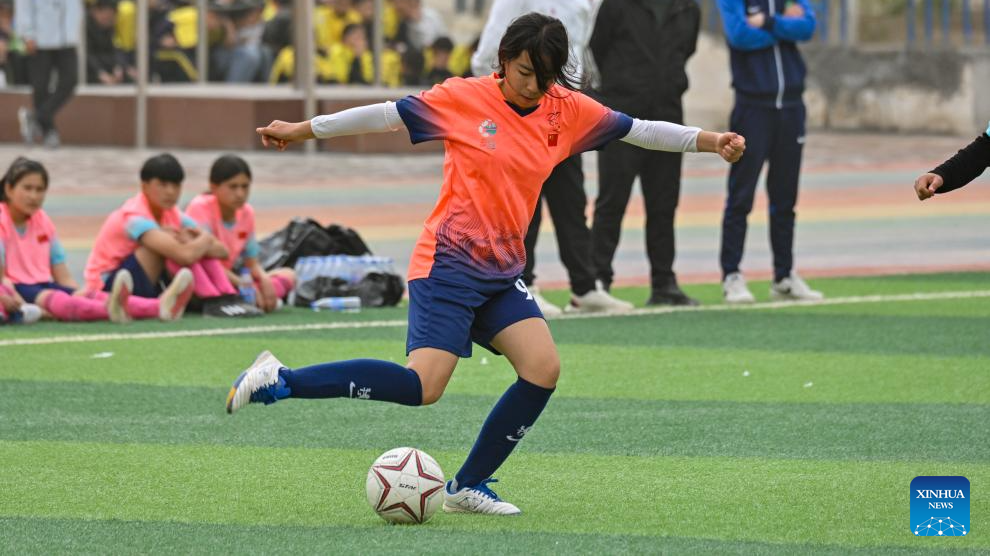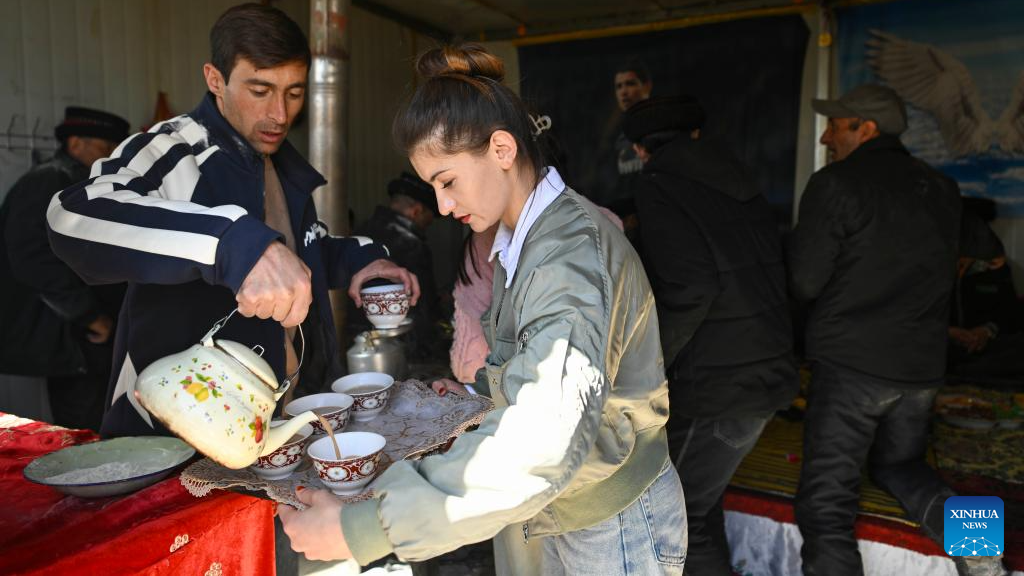
Photo taken on June 6,2021 shows the 39th Press Conference on Xinjiang-related Issues in Urumqi,capital of northwest China’s Xinjiang Uygur Autonomous Region. Photo by Xinjiang Daily/ Zhou Peng
On June 6, 2021, a special press conference on Xinjiang related issues was held in Xinjiang Uygur Autonomous Region. Several representatives of ethnic minorities from Kashgar, Hotan, Kizilsu Kirgiz Autonomous Prefecture, Aksu, Bayingol Mongolian Autonomous Prefecture, Turpan and other places were invited to share their real experience of successfully realizing independent entrepreneurship and their stories about their hard work under the active encouragement and policy support of the government.
Elijan Anayat: Good morning, dear friends. Welcome to the press conference on Xinjiang related issues held in Xinjiang Uygur Autonomous Region.

Photo taken on June 6, 2021 shows Elijan Anayat, spokesman of People’s Government of Xinjiang Uygur Autonomous Region answers questions at the 39th Press Conference on Xinjiang-related Issues in Urumqi, capital of northwest China’s Xinjiang Uygur Autonomous Region. Photo by Xinjiang Daily/ Zhou Peng
Today, we are very happy to have invited several ethnic minority representatives from Kashgar, Hotan, Kizilsu Kirgiz Autonomous Prefecture, Aksu, Bayingol Mongolian Autonomous Prefecture, Turpan and other places. I would like to introduce them to you. Shalamati Kari, the founder of “Guli’s Home”, a tourists’ home-stay center featuring ethnic flavor in Kashgar, Tu’erdi’aili Mu’erzhabayi, the director of Chungan photography studio in Wuqia County, Kizilsu Kirgiz Autonomous Prefecture, Ayiguzaili Xiamili, a livestreamer from Hotan city, Aibeidula Wumu’er, the person in charge of Turpan Oubai E-Commerce Co., Ltd., Adilai abulaiti, the founder of adilai Clothing Co., Ltd. from Kuqa City, Aksu Prefecture, Zulipiya Maihemuti, the owner of beauty salon in Akto County, Kizilsu Kirgiz Autonomous Prefecture, and Aimai’erjiang Aizaizi, the owner of an online musical instrument shop in Bohu County, Bayingol Mongolian Autonomous Prefecture. In addition, we also invited Liu Wei, deputy director of the Foreign Affair Office of Xinjiang Uygur Autonomous Region, to attend the press conference today.
Now several representatives of ethnic minorities will share with us their real experience of successfully starting their own businesses and realizing a better-off life through their hard work under the active encouragement and policy support of the government. Let’s enjoy their stories of their hard work.
In recent years, rapid progress has been made in tourism industry in Xinjiang, which has helped a large number of people realize their dream of establishing their own business and realizing a better-off life. Shalamati Kari, who has been invited here, is one of them. With the help and support of the government, she has greatly improved the financial situation in her family and has led people around her to have got the employment by opening “Guli’s home”. Now, let’s enjoy her story about how she successfully started her business.

Photo taken on June 6, 2021 shows Shalamati Kari, the founder of “Guli’s home” in Kashgar City, Kashgar Prefecture speaks at the 39th Press Conference on Xinjiang-related Issues in Urumqi, capital of northwest China’s Xinjiang Uygur Autonomous Region. Photo by Xinjiang Daily/ Zhou Peng
Shalamaiti Kari: My name is Shalamaiti Kari. I’m from Kashgar City, Kashgar Prefecture. I’ve set up “Guli’s home”, a tourists’ home-stay center featuring ethnic custom in the old city proper of Kashgar.
I was born in the old city proper of Kashgar, and my home is at Areya road. In my mind, the old city proper in my childhood did not have such good public infrastructure, and the life of the residents was very inconvenient. The treatment of sewage depended on evaporation, the removal of garbage depended on wind blowing, the water pipes were hung on the walls, and people always urinated on the roof. This is a true portrayal of the old city proper in Kashgar City in those years. After my graduation in 2010, I went back to my hometown and worked as a tourist’s guide in the old city proper of Kashgar to introduce the beautiful scenery and delicious food in my hometown to tourists. Since the successful establishment of national 5A scenic spot in the old city proper of Kashgar in 2015, the tourism market of the old city proper of Kashgar has developed rapidly, and more and more tourists come to Kashgar. With the support of the government, I took the lead in setting up “Guli’s home”, a tourists’ home-stay center in the ancient city of Kashgar.
“Guli’s home” is located at No. 940, Areya Road, Kashgar ancient city scenic spot. It is a residential courtyard featuring Uygur characteristics, with a three-floor building covering a total construction area of about 500 square meters. In order to better show the ethnic customs, I invested about 500,000 yuan to improve the facilities and provide services including song and dance performances, folk experience, catering services, tourism commodity sales, photography and other services. “Guli’s home” has 16 employees and can receive 80-100 tourists at the same time. In 2020, owing to the epidemic, I met with many difficulties. With the government’s good policy of discount loan, I went through the difficulties. Through independent entrepreneurship, the financial situation in my family has been greatly improved. I bought an apartment, changed my bicycle into a car, and lived a very happy life.
Recently, I saw on the internet that some foreign people with ulterior motives said that people in Xinjiang were forced to work. This is nonsense! My business and happy life are inseparable from the good policies of the government. Without the successful reconstruction of the old city proper of Kashgar city, the establishment of 5A scenic spot, the policy support of Kashgar governments at all levels and the old city proper management committee, “Guli’s home” could not have been successfully established. Without the support and recognition of tourists from all over the country and of all ethnic groups, “Guli’s home” would not have developed in such a good way today. In the future, I will strive to improve the management and better serve the tourists from all over the world.
Elijan Anayat: Thanks to Shalamaiti Kari for sharing with us her story. Now let’s invite Tu’erdiali Mu’erzhabayi, director of Chungan Photography Studio in Wuqia County, Kizilsu Kirgiz Autonomous Prefecture, to tell his story about how he realized his dream of being a photographer by participating in professional photography art training and starting his own business.

Photo taken on June 6, 2021 shows Tu’erdiali Mu’erzhabayi, director of Chungan Photography Studio in Wuqia County, Kizilsu Kirgiz Autonomous Prefecture speaks at the 39th Press Conference on Xinjiang-related Issues in Urumqi, capital of northwest China’s Xinjiang Uygur Autonomous Region. Photo by Xinjiang Daily/ Zhou Peng
Tu’erdiaili Mu’erzhabayi: My name is Tu’erdiaili Mu’erzhabayi. I come from Wuqia County, Kizilsu Kirgiz Autonomous Prefecture. Now I am the owner of a wedding photography shop.
I’ve been loving photography since I was a child. Being a photographer is my lifelong dream. But at that time, the conditions in my family were not good, and I didn’t have the opportunity to do what I loved. Later, especially after 2018, with the help of the village committee, our family moved into a brand-new house built for farmers and herdsmen. We built a sheepfold with poverty alleviation funds, and expanded the scale of breeding. With the help of the village committee, my parents found a job in the village and got a stable income. When the employment skills training was carried out in the county, I took the initiative to participate in professional photography art training. After half a year of training and professional practice, my photography skill has been greatly improved. In the second half of 2019, with the support of the village committee, I started my own business, set up my Chungan Photography Studio, and realized my ideal. Now I feel that I have a full and happy life everyday .
Recently, I saw on the internet that anti-china forces in the United States and some western countries falsely accused Xinjiang of so-called “forced labor”. I think they are really abominable! Do we need to be forced to make our life better through our own hands? I would like them to shut their irresponsible mouths. We have the most say in our own life.
Elijan Anayat: Thanks to Tu’erdiaili Mu’erzhabayi. Today, livestreaming through the internet platform has become a popular marketing mode. Some people sell their hometown products to all parts of the country through livestreaming, which not only increases their income, but also drives the people around them to find means to increase income. We also invited several representatives who have made some achievements in this field. Now, let’s invite Ayiguzaili Xiamili from Hotan City, Hotan Prefecture, to tell her story.

Photo taken on June 6, 2021 shows Ayiguzaili Xiamili, a streamer from Hotan City, Hotan Prefecture speaks at the 39th Press Conference on Xinjiang-related Issues in Urumqi, capital of northwest China’s Xinjiang Uygur Autonomous Region. Photo by Xinjiang Daily/ Zhou Peng
Ayiguzaili Xiamili: Hello, everyone. My name is Ayiguzaili Xiamili. I’m from Hotan City, Hotan Prefecture. Now I’m a livestreamer.
In 2018, I accidentally watched other people doing livestreaming on the internet, which was very interesting to me then. I felt that by this means I could not only show myself in public, but also help develop my own career, so I came up with the idea of being a livestreamer. At the beginning, I searched online for relevant knowledge and new media operation skills. After learning for a period of time, I really wanted to practice it in real life. At that time, I saw a recruitment advertisement of an e-commerce company on the internet. I went to apply with the idea of having a try, and I succeeded. At the beginning of the livestreaming, I was shy and inexperienced. I had no way to accurately respond to the questions raised by netizens. With the help of my coach’s patient coaching, and my frequent watching and learning live activities of some nationwide famous livestreamers, I gradually accumulated some experience and became more confident than before. Now I can freely communicate with fans. Through the livestreaming, I sold Hotan characteristic agricultural products to people from all over the country. At the same time, I have successfully got more people to know and like Hotan. I feel a great sense of achievement.
In August 2019, I became the company’s training instructor as I wished. I have mastered more livestreaming strategies, and have become more and more skilled in attracting fans, e-commerce, small yellow car, shooting, setting off the atmosphere and other skills, and have got more and more recognition and attention from netizens. Now I am also an experienced new media operator. In the future, I want to go to other provinces and cities to investigate the cosmetics industry, and then set up my own company. Through the mode of “online live sales + offline real commodity trading”, I will use the new media technology I have learned to work as my own livestreamer and sell cosmetics in order for every girl who buys and uses my cosmetics to become beautiful and confident.
I saw on the internet that the anti-China forces in the United States and some western countries said that we Uygurs were “forced to work”. I think they are ridiculous. What they said is nonsense! We are striving to realize our own dreams. Where is the forced labor? Do I need to be forced to learn new media skills and make money through livestreaming?
Elijan Anayat: Thanks to Ayiguzaili Xiamili. Now let’s invite Aibeidula Wumu’er, the person in charge of Turpan Oubai E-Commerce Co., Ltd. to tell the story of his new-born life after he graduated from the vocational education and training center.

Photo taken on June 6, 2021 shows Aibeidula Wumu’er, the person in charge of Turpan Oubai E-Commerce Co., Ltd speaks at the 39th Press Conference on Xinjiang-related Issues in Urumqi, capital of northwest China’s Xinjiang Uygur Autonomous Region. Photo by Xinjiang Daily/ Zhou Peng
Aibeidula Wumu’er: Hello, everyone. My name is Aibeidula Wumu’er. I come from Grape Town, Gaochang District, Turpan city. I am a graduate of the vocational education and training center, and now I am the person in charge of Turpan Oubai e-commerce Co., Ltd.
In the past, I had some acquaints with the status of “boss”. They often took me to some “parties” and sent me some videos about terrorist violence. Gradually, I was affected by the videos. I watched them myself, and I also sent them to people around me. At the same time, I didn’t allow my sister to go to school because I thought the schools run by government were not “halal”, and I forbade people around me to do business with “heretics”. In January 2018, at the persuasion of my family and community workers, I voluntarily signed up to participate in the vocational education and training center. The learning and living conditions of the vocational education and training center were very good. The teachers showed a lot of care to us. Food and accommodations were free then. In the vocational education and training center, I learned the standard spoken and written Chinese languages, law and de-radicalization knowledge, and also learned computer skills and skills for tourist’s guide out of my own interest. In April 2019, after graduating from the vocational education and training center, by taking advantage of my major and skills, I set up an e-commerce company with the help of the town government.
In 2020, I seized the business opportunity of live streaming commerce and boldly made a try to sell special products of Turpan on the new media platform. In just one month, 50,000 packs of fresh grapes, 20,000 packs of tomatoes and 20,000 packs of Hami melons were sold out, and people all over the country got the opportunity to enjoy the distinctive fruits of Turpan. This year, through Tiktok and Kwai and other new media platforms I have continued to increase sales to help boost rural development. The company has sold more than 100 tons of Xinjiang characteristic dried fruit such as raisins and red dates, with sales exceeding 5million yuan, which has made its own contribution to solve the problem of difficult sales for agricultural products. Now, the company is growing increasingly with 15 partners and has established many online stores, live rooms, township express stations, offline Xinjiang specialty stores, etc.. With more than 3 million fans on the internet, 25 local farmers and herdsmen have been arranged to find employment.
Recently, I saw on the internet that some anti-China forces in the United States and some western countries falsely claimed that “The trainees in the vocational education and training centers were ‘forced to labor’”. I was shocked and indignant! As a graduate of the vocational education and training center, I would like to tell them that we have never been “forced to labor” in the vocational education and training center. The vocational education and training center helped us get rid of extremist religious control and learn vocational skills. It can be said that we have been given “a second life” in the vocational education and training center where I got a turning point in my life. After graduation, the government provided good policies for us and offered a lot of employment and entrepreneurship opportunities, which has given us a good life. I am the best example to testify it. Those people should stop talking nonsense.
Elijan Anayat: Thanks to Aibeidula Wumu’er. Now let’s invite Adilai Abulaiti, the founder of Adilai Clothing Company in Kuqa City, Aksu Prefecture, to tell her story about her successful establishment of a clothing factory by systematically learning clothing design knowledge and applying for interest free business loan.

Photo taken on June 6, 2021 shows Adilai Abulaiti, the founder of Adilai Clothing Company in Kuqa City, Aksu Prefecture speaks at the 39th Press Conference on Xinjiang-related Issues in Urumqi, capital of northwest China’s Xinjiang Uygur Autonomous Region. Photo by Xinjiang Daily/ Zhou Peng
Adilai Abulaiti: My name is Adilai Abulaiti. I am a native of Kuqa city Aksu Prefecture. I am the founder of Adilai Clothing Company in Kuqa city.
I was keen on making beautiful clothes for my dolls when I was a child. Gradually I developed an interest in fashion design. When I followed my mother to the tailor’s shop to make clothes, I admired the tailor’s posture of using the sewing machine very much, in hope that I can have this ability when I grow up and have my own tailor’s shop.
In 2015, through my own effort, I got an opportunity to study in the design class of Beijing Institute of Fashion Technology. There, I systematically studied various courses of fashion design, completed three years of study within one year, and won the first prize on excellent craft and the third honorary prize in 2016 Graduation Design Competition. After graduation, I found a job as a designer in a textile company. In my spare time, I designed some coats and sweaters with the characteristics of my hometown, and put them in my friend’s store for sale. The coats and sweater won great popularity. In just two months, I sold more than 200 pieces of clothes.
In May 2018, I decided to give full play to my skills and start a garment factory to realize my dream harbored from my childhood. At the beginning, due to the lack of suitable business site, skilled workers and start-up funds, I went to the local government and told them about my entrepreneurial ideas. What I didn’t expect was that my business plan was strongly supported by the government. They inclusively applied for an interest free business loan of 100,000 yuan for me, and provided me with a free use of business site for one year and 47 sewing machines free of charge. This has strengthened my confidence and determination to run a garment factory. Now, there are 50 employees in my clothing factory, and their monthly income is about 3500 yuan. The factory is very profitable.
Recently, I heard that some people abroad claimed that there was “forced labor” in Xinjiang, which made us native Xinjiang people feel indignant. We think what they said is ridiculous. Only those who wear the shoes know whether the shoes fit their foot or not. I want to make it loud. We are happy to work and there is no need to force us to work. If you want to know the real situation, come here and have a look!
Elijan Anayat: Thanks to Adilai Abulaiti. Now let’s invite Zulipiya Maihemuti, the owner of a beauty salon in Akto County, Kizilsu Kirgiz Autonomous Prefecture, to tell in Uygur language the story of her transformation from an ordinary housewife to a successful entrepreneur.

Photo taken on June 6, 2021 shows Zulipiya Maihemuti, the owner of a beauty salon in Akto County, Kizilsu Kirgiz Autonomous Prefecture speaks at the 39th Press Conference on Xinjiang-related Issues in Urumqi, capital of northwest China’s Xinjiang Uygur Autonomous Region. Photo by Xinjiang Daily/ Zhou Peng
Zulipiya Maihemuti: My name is Zulipiya Maihemuti. I’m from Akto County Kizilsu Kirgiz Autonomous Prefecture. I’m the owner of a beauty salon in Akto county and I’m mainly engaged in cosmetics sales, beauty salons etc.
After graduating from high school, I opened two beauty salons in Akto County after I learned the government’s policies to help self employment. From the one-stop service to help us apply for setting up a company to the “six guarantees” policy during the epidemic period, I can see that the government really cares about us self-employed entrepreneurs and small and micro enterprises. As an entrepreneur who had greatly enjoyed the benefits of the national assistance policy, I also wanted to help more people start their own businesses and get employment, so I took the initiative to contact the graduates majoring in beauty and hairdressing from Akto Vocational Secondary School to provide them with internships and employment opportunities. Today, my company has more than 30 employees. I often told them that I was an ordinary person who came out of a small village in southern Xinjiang and that by learning knowledge and skills, I improved and enriched myself step by step, thus changed my destiny. My staff are as diligent as I was in those days. We all firmly believe that in such a good environment, as long as we are willing to work hard, we will be able to live a happier and better life with our own hands.
Now my business is growing and I have a happy family. I am deeply grateful to the government for their support for us entrepreneurs. The government helped me realize the magnificent transformation from an ordinary housewife to an entrepreneur. I am proud of living in such a beautiful and harmonious country.
Recently, the anti-China forces in the United States and some western countries fabricated the lies that there is so-called “forced labor” in Xinjiang. However, people with a clear mind know that this is pure fabrication without any factual basis. Taking myself as an example, the employees of my two beauty salons are recruited through recruitment. They chose their jobs out of their own wish and signed work contracts with the company. They get full remuneration on time every month. In addition, my beauty salon also helped many graduates find internships and jobs. I want to ask these slander mongers, which of your eyes has seen the “forced labor” in Xinjiang? We Uygur people have a saying: Liars are shameless, and slander mongers are despicable. You are really shameless and despicable.
Elijan Anayat: Thanks to Zulipiya Maihemuti. Now let’s invite Aimai’erjiang Aizaizi, the owner of an online musical instrument shop in Bohu County, Bayingol Mongolian Autonomous Prefecture, to tell the story on how he, with the help of the government, set up the dutar cooperative to protect, inherit and develop the ethnic musical instrument, enabling more people to know about it.

Photo taken on June 6, 2021 shows Aimai’erjiang Aizaizi, the owner of an online musical instrument shop in Bohu County, Bayingol Mongolian Autonomous Prefecture speaks at the 39th Press Conference on Xinjiang-related Issues in Urumqi, capital of northwest China’s Xinjiang Uygur Autonomous Region. Photo by Xinjiang Daily/ Zhou Peng
Aimai’erjiang Aizaizi: Hello, everyone. My name is Aimai’erjiang Aizaizi. I come from Bohu County Bayingol Mongolian Autonomous Prefecture. I’m an internet streamer. I mainly sell ethnic musical instruments such as dutar, tanbur and rewap.
I was born in an ordinary farmer’s family. I was keen on ethnic musical instruments when I was a child. But at that time, the financial conditions in my family were not good. I didn’t have the money to learn crafts, so I helped my family to do farm work and odd jobs. In 2010, after I got married, I followed my father-in-law to learn how to make dutar and I had learned for seven years. In 2017, with the support and help of my family, I started my own business and made a try on making dutar at home. Through continuous research and exploration, I finally made a series of exquisite dutar. At that time, I drove to every county every day to sell my dutar. However, the business was not good because of the small market.
Later, my family suggested that I promote ethnic musical instrument sales through the means of live streaming commerce. So I registered at Tiktok and Kwai, releasing my work every day and live streaming my dutar playing. I didn’t expect that many netizens were attracted. In order to attract more fans, I tried releasing the process of dutar making, demonstrating more than 20 procedures involving material selection, cutting, grinding, baking, painting and bonding through livestreaming. In just a few months, the number of fans who followed me rose to 120,000, and the orders from all over the country also increased. The price of the dutar I have made ranges from 500 yuan to 3500 yuan. Now I can earn 20000 yuan or 30000 yuan a month. As the business got better and better, I invited my family to the dutar making team. What impressed me most was that once we had made 100 dutars, but received orders for nearly 200 dutars. We worked overtime to meet the needs of customers. Although the work was very hard, we were very excited with joy.
With the help of the government, I sorted out the open space of my courtyard and built a dutar cooperative covering an area of 200 square meters. Now, more and more people come to Bohu County for sightseeing. They come to my cooperative to buy the dutar. The business is getting better and better, and the monthly income is tens of thousands of yuan. I hope that in the future, I can bring more young people who love ethnic musical instruments to learn this craft and pass it on.
Recently, through Tiktok and Kwai, I learned that some anti-China forces falsely claimed that there was “forced labor” in Xinjiang. I was very indignant. We start our own business to earn money and support our family. Our purpose is to make our life better. No one has ever forced us, and we don’t need anyone to force us, because a happy life is won through our own hard work!
Elijan Anayat: Thanks to Aimai’erjiang Aizaizi for his sharing and his wonderful performance of the song “Why are the flowers so red”. Thanks again to the seven representatives for your sharing your stories with us. In fact, many people in Xinjiang, with the support of the government, have realized a better-off life through their own hard work. In view of this, we have prepared a video for you, which tells the stories about the work of ethnic minorities in Kashgar, Hotan, Aksu and other places. Now, let’s watch it.
Elijan Anayat: Thank you again for your sharing. Work changes life and creates happiness. Finally, I wish you all have a good and happy life through your diligence in your respective fields.
This is the end of press conference for today. Thank you!



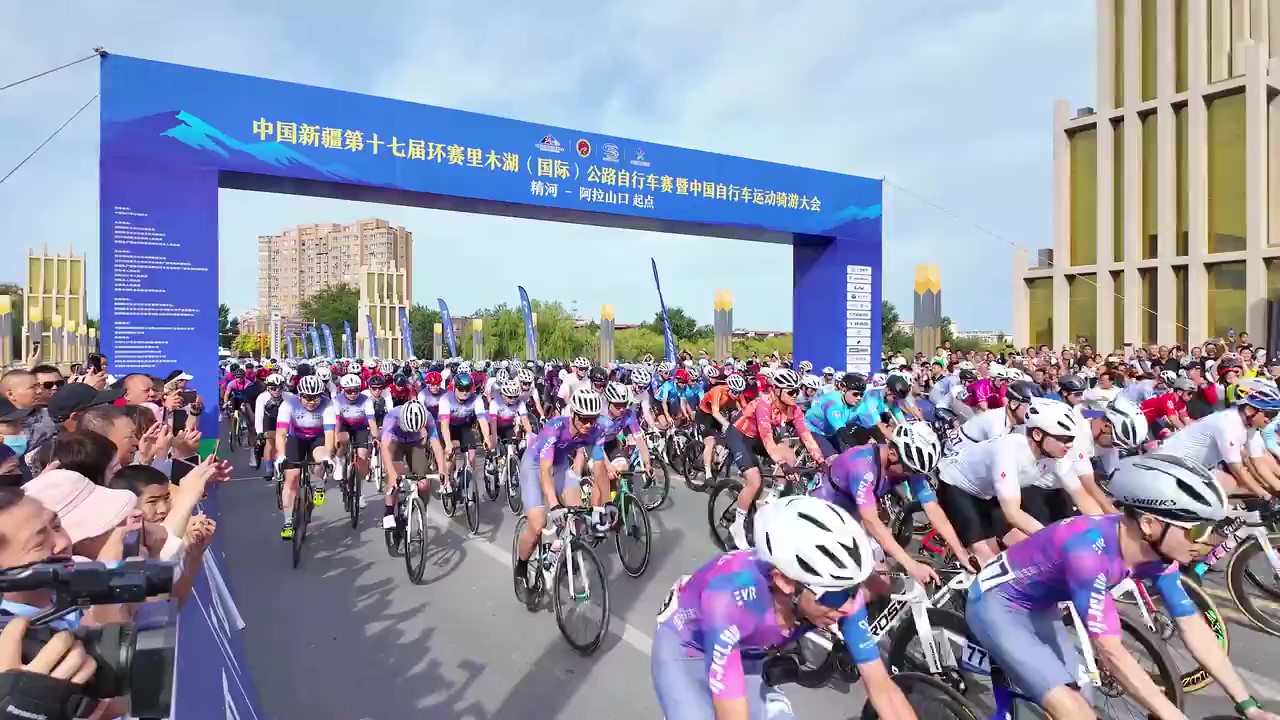

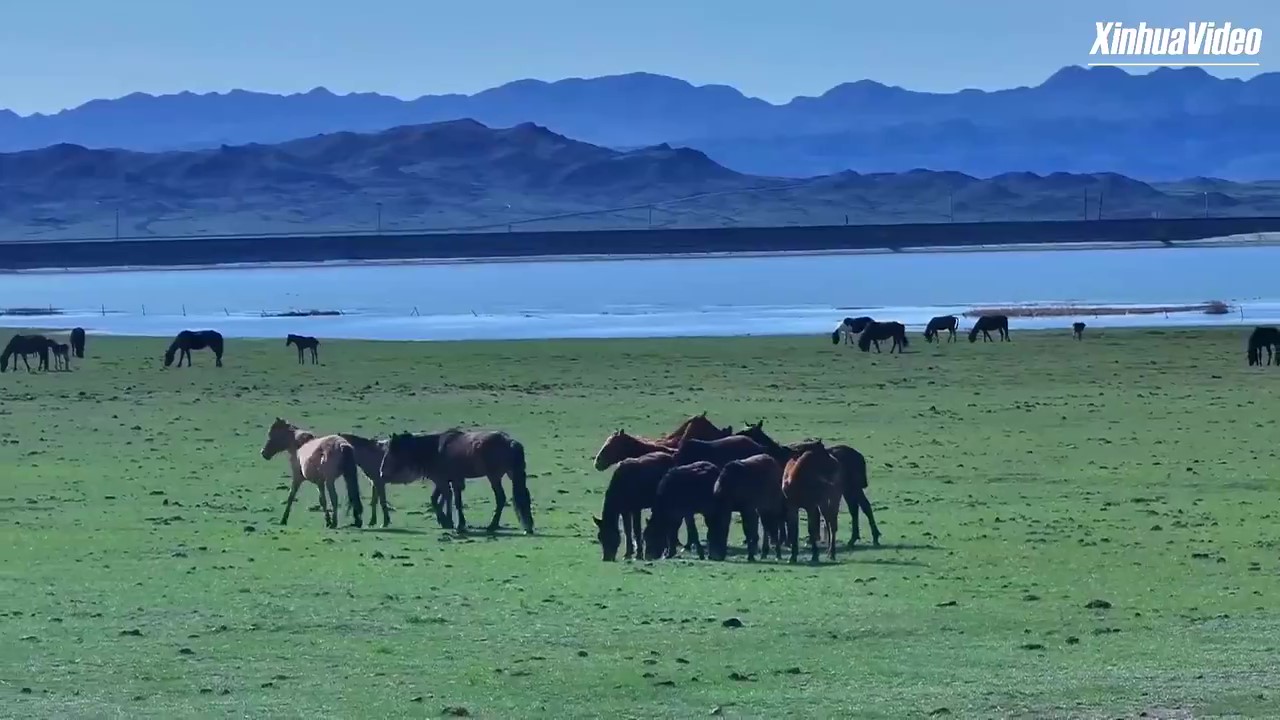


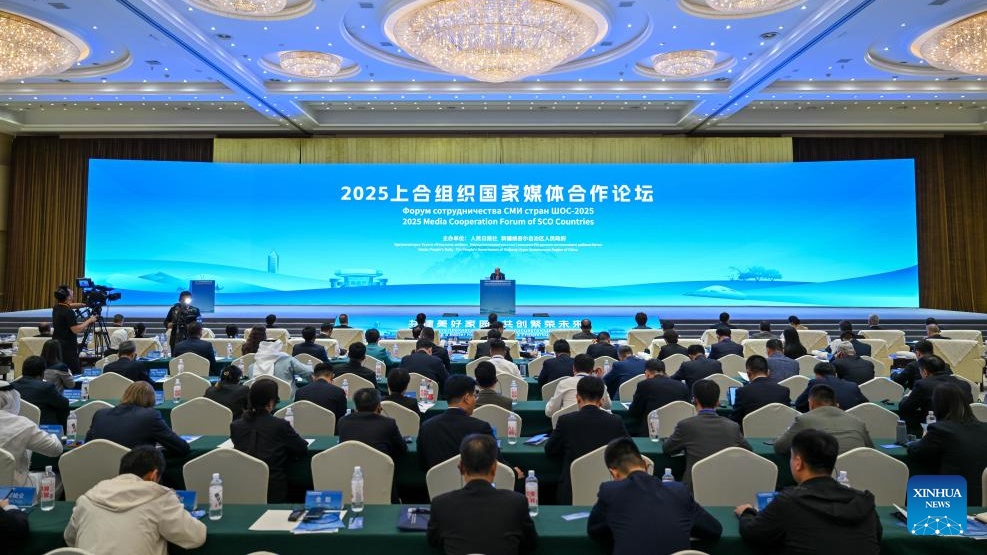
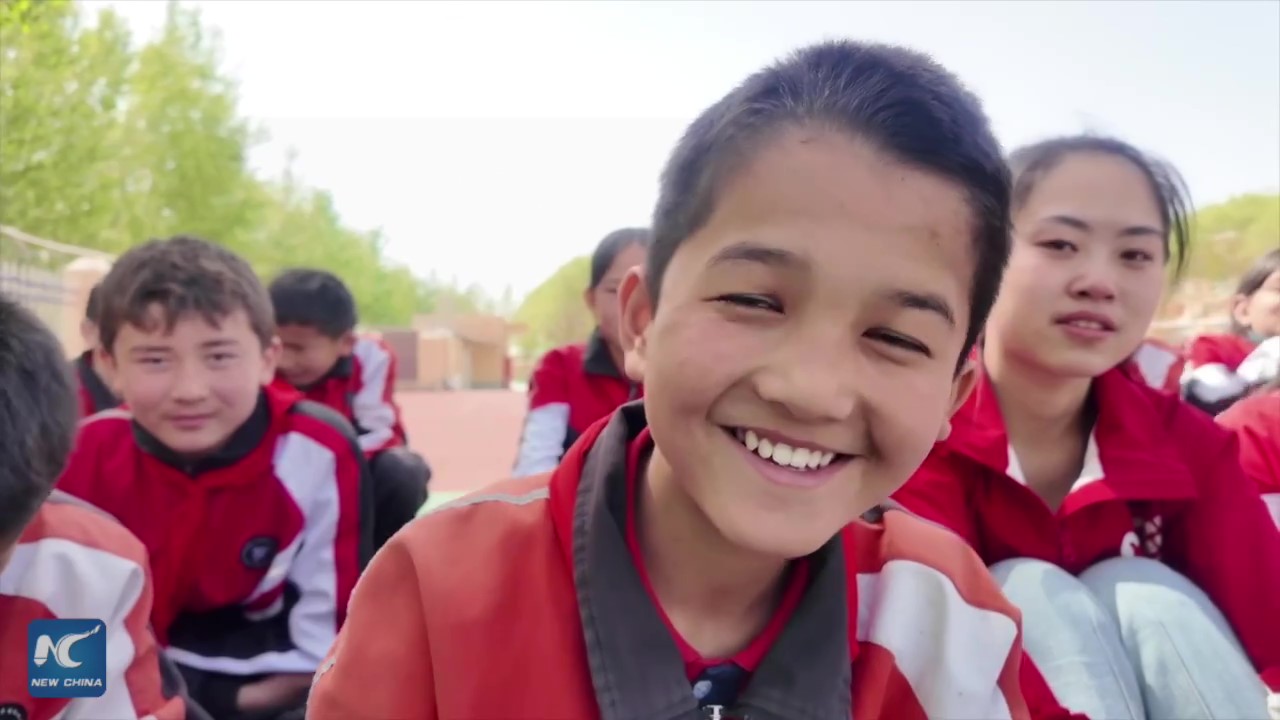


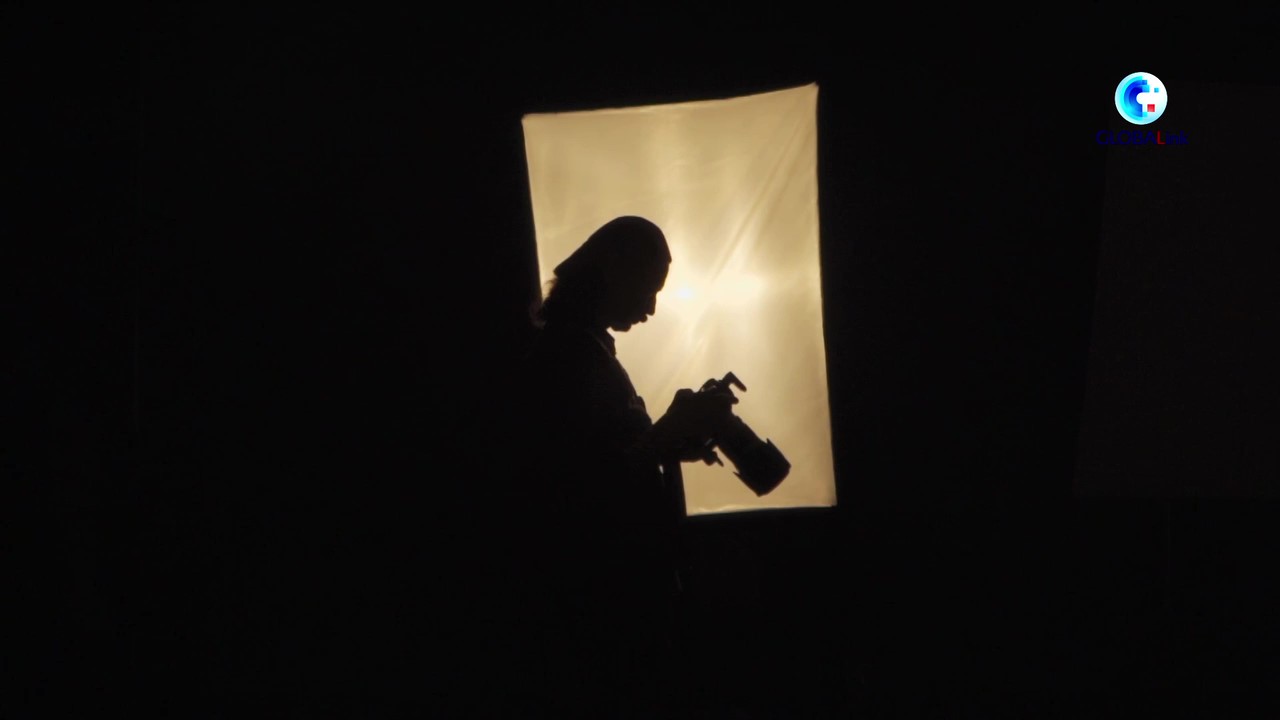

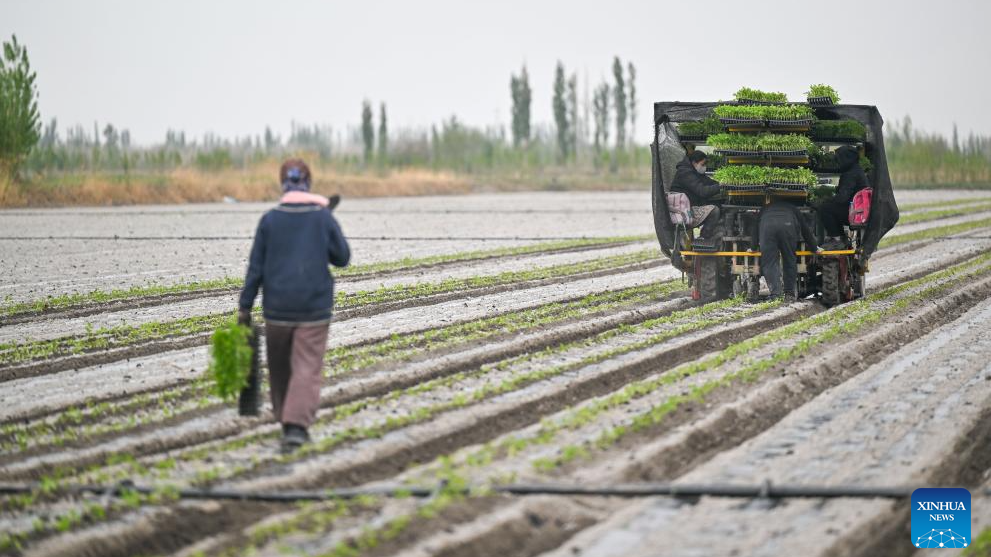


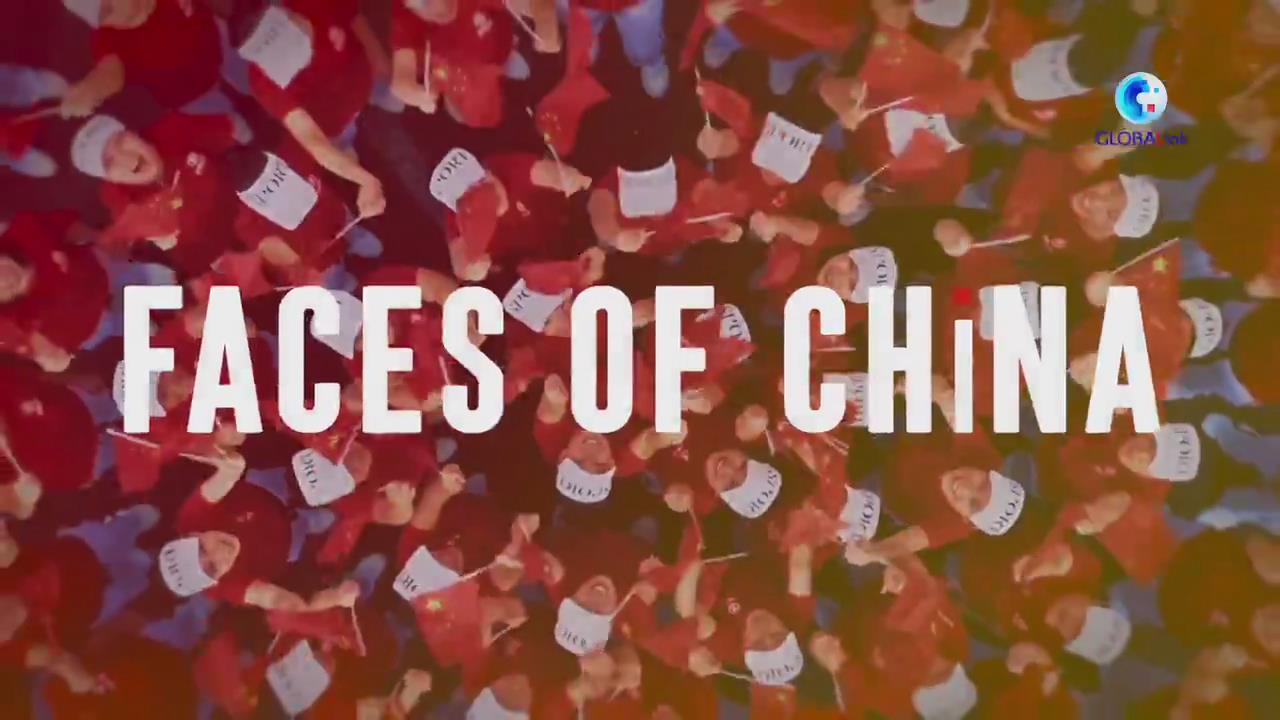
.png)
